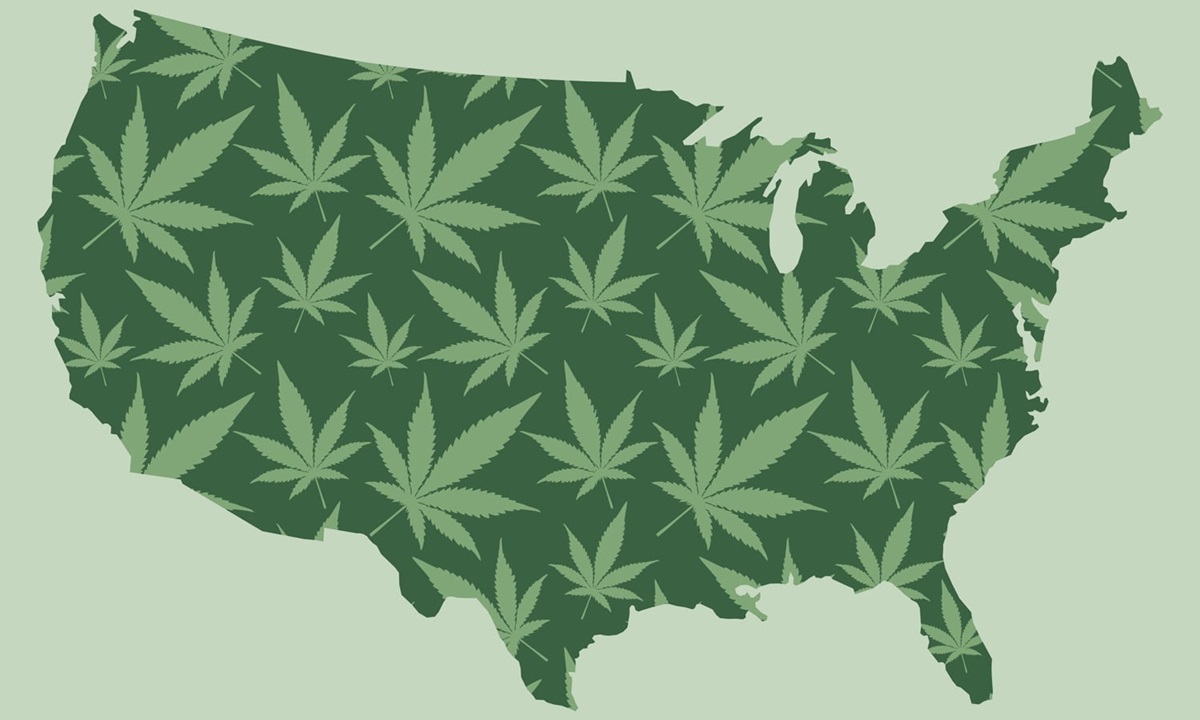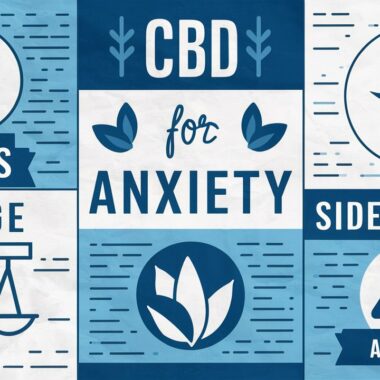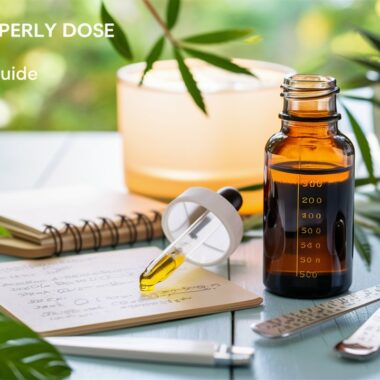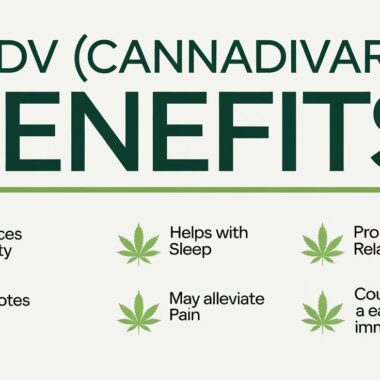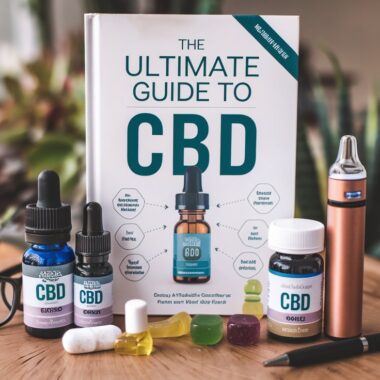Cannabidiol (CBD), a non-psychoactive compound derived from the cannabis plant, has surged in popularity across the United States, touted for its potential therapeutic benefits ranging from anxiety relief to pain management. However, despite its federal legalization under specific conditions, the regulatory framework governing CBD remains a patchwork of state-specific laws that can confound consumers, businesses, and policymakers alike. As of February 21, 2025, this article provides a fresh, in-depth exploration of U.S. CBD laws by state, blending original analysis with the latest developments to offer a resource that goes beyond surface-level summaries. This isn’t just a list, it’s a roadmap through the legal labyrinth, enriched with insights into enforcement trends, cultural influences, and the evolving interplay between federal and state authorities.
The Federal Foundation: Understanding the 2018 Farm Bill and Beyond
The cornerstone of CBD’s legal status in the U.S. is the 2018 Farm Bill, formally the Agriculture Improvement Act, which legalized hemp-defined as cannabis with less than 0.3% THC, on a federal level. This legislation removed hemp from the Controlled Substances Act, opening the door for hemp-derived CBD products to be produced, sold, and transported across state lines, provided they adhere to this THC threshold. However, the federal government left significant room for states to craft their own rules, resulting in a diverse regulatory landscape.
The U.S. Food and Drug Administration (FDA) further complicates matters. While it has approved Epidiolex, a CBD-based drug for rare seizure disorders, it maintains that adding CBD to food, beverages, or dietary supplements violates the Federal Food, Drug, and Cosmetic Act unless approved. This stance that remains largely unenforced but looms over the industry. In 2025, the FDA is still in the process of developing a comprehensive regulatory framework, leaving states to fill the gap with their interpretations.
State-by-State CBD Laws: A Spectrum of Regulation
Below, I’ve categorized states into four tiers based on their CBD policies as of February 2025, drawing from a mix of legislative updates, enforcement patterns, and original observations. This analysis highlights not just legality but also practical implications for consumers and businesses, offering a nuanced perspective beyond standard summaries.
Tier 1: Fully Legal with Minimal Restrictions
- States: Alaska, Arizona, California, Colorado, Connecticut, Maine, Massachusetts, Michigan, Montana, Nevada, New Jersey, New York, Oregon, Vermont, Virginia, Washington, District of Columbia
- Overview: These 17 jurisdictions represent the most permissive environments for CBD. Hemp-derived CBD with less than 0.3% THC is fully legal for both recreational and medicinal use, often aligning with broader cannabis-friendly policies (many of these states have also legalized recreational marijuana). Retailers face minimal hurdles, and consumers can purchase CBD in various forms-oils, edibles, topicals without a prescription.
- Notable Nuance: California, a leader in cannabis culture, technically bans hemp-derived CBD in food and beverages under state health codes, yet enforcement is lax, and proposed legislation in 2024 seeks to lift this restriction. In contrast, Vermont imposes quirky rules, such as prohibiting CBD-infused maple syrup from being labeled “pure,” reflecting its agricultural heritage.
- Insight: These states frequently view CBD as an economic opportunity, with robust hemp industries driving job growth. For example, Colorado’s hemp acreage has doubled since 2020, fueled by demand for CBD products.
Tier 2: Conditionally Legal with Restrictions
- States: Alabama, Arkansas, Delaware, Florida, Georgia, Hawaii, Illinois, Indiana, Iowa, Kansas, Kentucky, Louisiana, Maryland, Minnesota, Mississippi, Missouri, New Hampshire, New Mexico, North Carolina, North Dakota, Ohio, Oklahoma, Pennsylvania, Rhode Island, South Carolina, Tennessee, Texas, Utah, West Virginia, Wisconsin, Wyoming
- Overview: In these 31 states, hemp-derived CBD with 0.3% THC or less is legal, but conditions apply. Some restrict recreational use, requiring medical marijuana cards for CBD with any detectable THC, while others impose strict labeling or testing requirements. Marijuana-derived CBD remains illegal outside medical programs.
- Standout Examples:
- Texas: Permits hemp-derived CBD but bans smokable hemp products, a rule rooted in conservative attitudes toward inhalation methods. Out-of-state smokable CBD is tolerated, creating a gray market.
- Indiana: Legalized CBD in 2018 after a high-profile case involving a mother using it for her child’s seizures, yet retailers must provide certificates of analysis (COAs) proving THC levels.
- Iowa: Allows CBD under a medical program, but law enforcement has seized products exceeding 0.3% THC, reflecting a cautious approach.
- Analysis: These states often balance public demand with political resistance to cannabis. Enforcement varies widely-rural sheriffs may scrutinize CBD more than urban regulators-suggesting geography influences compliance more than statutes alone.
Tier 3: Highly Restrictive
- States: Idaho, Nebraska, South Dakota
- Overview: These three states stand out as CBD holdouts. Idaho requires 0% THC (an impossible standard for most hemp products), Nebraska allows hemp-derived CBD but restricts sales, and South Dakota’s laws remain murky despite a 2024 voter push to legalize hemp.
- Deep Dive:
- Idaho: Its strict stance stems from a cultural aversion to cannabis, reinforced by a 2023 attorney general opinion classifying CBD as a controlled substance unless THC-free. Local hemp farmers have relocated to Oregon as a result.
- Nebraska: A 2019 bill decriminalized hemp, but enforcement lags, with CBD shops facing occasional raids. A grassroots movement in Omaha is pushing for clarity in 2025 legislative sessions.
- South Dakota: After years of legal ping-pong, hemp-derived CBD is technically legal, but Governor Kristi Noem’s resistance has stalled implementation, leaving consumers in limbo.
- Insight: These states illustrate how local politics and historical attitudes can outweigh federal mandates, creating de facto bans despite hemp’s legality.
Tier 4: Territories and Exceptions
- Jurisdictions: Puerto Rico, U.S. Virgin Islands
- Overview: Puerto Rico aligns with federal hemp laws, allowing CBD with less than 0.3% THC, while the U.S. Virgin Islands follows suit but lacks a robust regulatory framework. Enforcement is minimal, reflecting resource constraints rather than policy intent.
- Observation: These territories mirror Tier 1 states in permissiveness but lack the infrastructure to monitor compliance, making them Wild West outposts for CBD.
Emerging Trends and Original Insights
Enforcement Disparities: The Rural-Urban Divide
A pattern overlooked in many analyses is the rural-urban enforcement gap. In states like Kentucky or Missouri, urban centers like Louisville and St. Louis see thriving CBD markets, while rural counties report seizures of legal products due to misinformed sheriffs. This suggests that education, not just legislation, shapes CBD’s real-world status.
Economic Incentives Driving Change
States with struggling agricultural sectors-think Kansas or North Dakota-are quietly expanding hemp programs to boost rural economies. In 2024, Kansas saw a 30% increase in hemp licenses, hinting at a shift toward Tier 1 status by 2026. This economic lens reveals how CBD laws evolve less from ideology and more from pragmatism.
The Delta-8 Factor
The rise of delta-8 THC, a hemp-derived psychoactive compound, has muddied CBD regulations. States like Texas and Georgia, initially permissive with CBD, cracked down on delta-8 in 2024, inadvertently tightening CBD oversight. This spillover effect underscores how adjacent cannabis products influence CBD’s legal trajectory.
Practical Implications for Consumers and Businesses
- Consumers: Always check COAs to verify THC content, especially in Tier 2 and 3 states. Traveling with CBD? Stick to hemp-derived products and avoid Idaho. Medical users should explore state-specific programs for broader access.
- Businesses: Compliance is king-invest in third-party testing and stay updated on local ordinances. In restrictive states, online sales with clear disclaimers can bypass local hurdles, though interstate shipping carries risks.
Looking Ahead: The Future of CBD Laws
As of February 2025, the FDA’s forthcoming CBD rules could harmonize state laws, but don’t hold your breath-delays have plagued this process since 2019. Meanwhile, states like Nebraska and South Dakota face pressure from voters and farmers to loosen restrictions, while Tier 1 states may pioneer innovations like CBD-infused public health initiatives. The tension between federal inertia and state autonomy will define the next chapter.
Conclusion
The U.S. CBD landscape is a mosaic of opportunity and obstacle, where federal legality meets state sovereignty in a dynamic dance. Whether you’re a consumer seeking relief, a retailer eyeing profits, or a policymaker navigating public will, understanding these laws by state is essential. Bookmark this guide, share it with a friend or keep it handy for your next cross-country trip, it’s your key to decoding one of America’s most fascinating legal frontiers.

